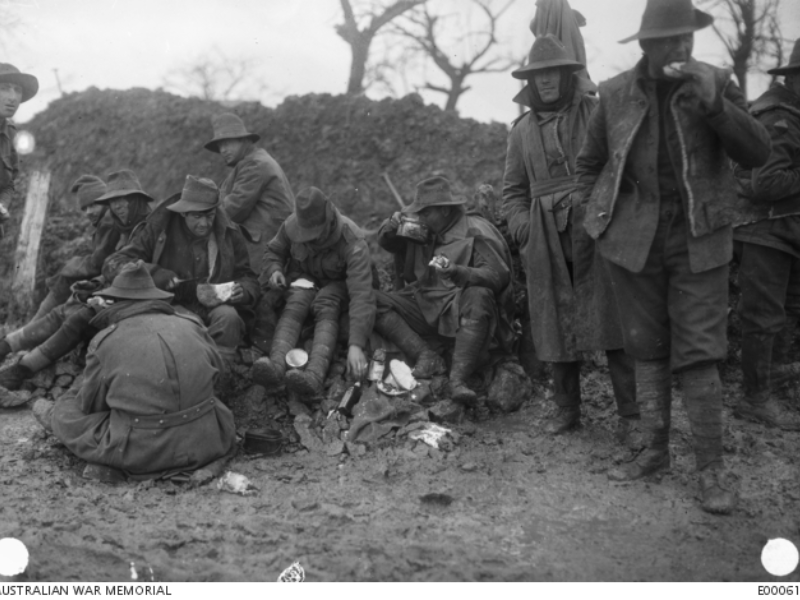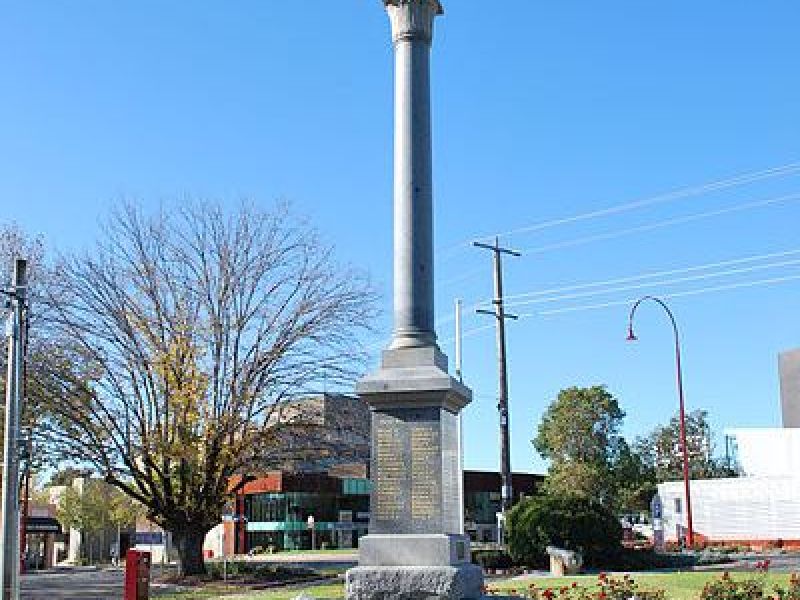Private Charles Winnell, 22nd Battalion, AIF
Popularly known as “Charlie”, Charles Winnell was born in 1893 to William and Anne Winnell of Wangaratta, Victoria. He was born into a large family and grew up in nearby Greta. As a young man he became a well-known boxer around Wangaratta, and won several boxing competitions. On the outbreak of war he was working as a labourer.
Winnell tried to enlist in the Australian Imperial Force as many as six times before he was finally accepted in February 1916. He left Melbourne on board the troopship Ayrshire five months later, arriving in Plymouth, England, in September 1916. Private Winnell underwent further training in England before joining his battalion on the Western Front on Boxing Day 1916.
The 22nd Battalion spent the harsh winter of 1916 and 1917 rotating in and out of the front line. Although it was a quiet period of the war, Private Winnell wrote home that he had had several near misses, and that his steel helmet had saved his life on one occasion.
In the spring of 1917, the German Army on the Somme began to withdraw to a strong, pre-prepared defensive line known to the allies as the Hindenburg Line.
Private Winnell misunderstood this planned withdrawal and wrote letters home triumphantly declaring that the Australians had driven the Germans back 30 miles in six weeks.
He wrote: “the Australians were preparing for the biggest bombardment yet known in France … and were looking forward to pushing him back three miles in the next attack, which promised to be a terrible one.”
On 3 May 1917, the 22nd Battalion attacked the Hindenburg Line near the French village of Bullecourt. It came under heavy German shell-fire from the earliest moments of the operation, and as the attack went ahead they were held up by heavy machine-gun fire. Parts of the battalion were able to achieve their objectives and began establishing posts, but in the face of continued casualties they were forced to withdraw.
That day the 22nd Battalion suffered nearly 450 casualties. One of those killed was Private Charles Winnell. Little is known of the manner of his death, and his body was never recovered. He was 23 years old.
Winnell’s sister Martha put a memorial notice in the newspaper the year after Charlie’s death. It read:
Your cheery sunny countenance will not from memory fade
Nor yet will we forget the noble sacrifice you made
And when our hearts are sore for you, we seem to hear you say,
Break not your hearts, dear loved one, we will meet again some day.
She ended her notice with the words: “Our dear Charlie, sadly missed.”
Dr Meleah Hampton, Historian, Military History Section
Image: A fatigue party of the 22nd Battalion, road mending between Montauban and Mametz, having their midday meal by the roadside. During brief rests from the line through the winter of 1916-1917, the battalion spent their days clearing roads.

 Australian War Memorial
Australian War Memorial